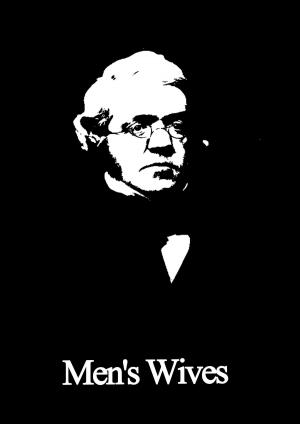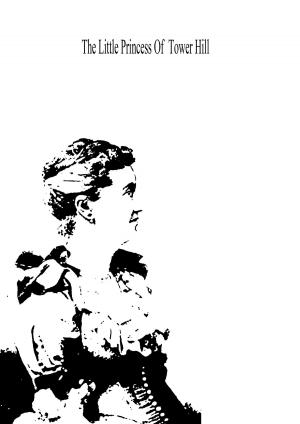On The Principle Of Population [Christmas Summary Classics]
Nonfiction, Reference & Language, Reference| Author: | T.R. Malthus | ISBN: | 1230000032292 |
| Publisher: | Zhingoora Books | Publication: | November 21, 2012 |
| Imprint: | Language: | English |
| Author: | T.R. Malthus |
| ISBN: | 1230000032292 |
| Publisher: | Zhingoora Books |
| Publication: | November 21, 2012 |
| Imprint: | |
| Language: | English |
Christmas Summary Classics
This series contains summary of Classic books such as Emma, Arne, Arabian Nights, Pride and prejudice, Tower of London, Wealth of Nations etc. Each book is specially crafted after reading complete book in less than 30 pages. One who wants to get joy of book reading especially in very less time can go for it.
T.R. MALTHUS
On the Principle of Population
Thomas Robert Malthus was born near Dorking, Surrey, England, Feb. 17, 1766, and after passing through the University of Cambridge was ordained, and travelled on the Continent. His great work, "An Essay on the Principle of Population as it Affects the Future Improvement of Society," was first published Anonymously in 1798, and five years later it appeared, under the title of "An Essay on the Principle of Population, or a View of its Past and Present Effect on Human Happiness, with an Enquiry into our Prospects Respecting the Future Removal or Mitigation of the Evils which it Occasions," under the author's name. Malthus is one of the most persistently misrepresented of great thinkers, his central doctrine being nothing less moral than that young men should postpone marriage until they have the means of supporting a family. It is of the first interest in the history of thought that the reading of this great essay of Malthus should have independently suggested, first to Charles Darwin, and later to Alfred Russel Wallace, the idea of natural selection as a necessary consequence of that struggle for life so splendidly demonstrated by Malthus in the case of mankind. It is to be wondered that Malthus, having provided himself with the key to the great problem of organic evolution, should have left its use to others. One explanation is, doubtless, that his survey was not comparative, covering the whole range of life, but was practically confined to one living form. Malthus died on December 23, 1834.
Christmas Summary Classics
This series contains summary of Classic books such as Emma, Arne, Arabian Nights, Pride and prejudice, Tower of London, Wealth of Nations etc. Each book is specially crafted after reading complete book in less than 30 pages. One who wants to get joy of book reading especially in very less time can go for it.
T.R. MALTHUS
On the Principle of Population
Thomas Robert Malthus was born near Dorking, Surrey, England, Feb. 17, 1766, and after passing through the University of Cambridge was ordained, and travelled on the Continent. His great work, "An Essay on the Principle of Population as it Affects the Future Improvement of Society," was first published Anonymously in 1798, and five years later it appeared, under the title of "An Essay on the Principle of Population, or a View of its Past and Present Effect on Human Happiness, with an Enquiry into our Prospects Respecting the Future Removal or Mitigation of the Evils which it Occasions," under the author's name. Malthus is one of the most persistently misrepresented of great thinkers, his central doctrine being nothing less moral than that young men should postpone marriage until they have the means of supporting a family. It is of the first interest in the history of thought that the reading of this great essay of Malthus should have independently suggested, first to Charles Darwin, and later to Alfred Russel Wallace, the idea of natural selection as a necessary consequence of that struggle for life so splendidly demonstrated by Malthus in the case of mankind. It is to be wondered that Malthus, having provided himself with the key to the great problem of organic evolution, should have left its use to others. One explanation is, doubtless, that his survey was not comparative, covering the whole range of life, but was practically confined to one living form. Malthus died on December 23, 1834.
![Cover of the book On The Principle Of Population [Christmas Summary Classics] by T.R. Malthus, Zhingoora Books](https://www.kuoky.com/images/2012/november/500x500/1230000032292-dYaV_500x.jpg)




![Cover of the book Chronicles of England, Scotl And, And Ireland [Christmas Summary Classics] by T.R. Malthus](https://www.kuoky.com/images/2012/december/300x300/1230000034794-ngtO_300x.jpg)
![Cover of the book The Theory of the Earth [Christmas Summary Classics] by T.R. Malthus](https://www.kuoky.com/images/2012/december/300x300/1230000036276-YDbw_300x.jpg)




![Cover of the book Tristram Shandy [Christmas Summary Classics] by T.R. Malthus](https://www.kuoky.com/images/2012/december/300x300/1230000034860-v5Uv_300x.jpg)



